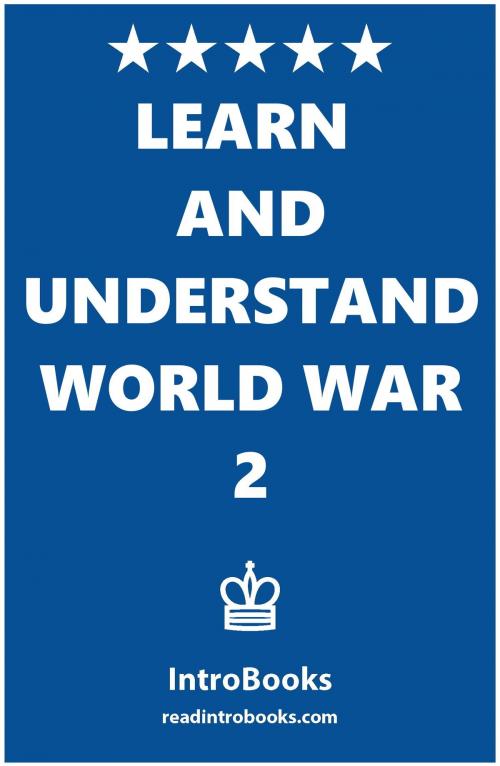| Author: | IntroBooks | ISBN: | 9781311818522 |
| Publisher: | IntroBooks | Publication: | April 15, 2016 |
| Imprint: | Smashwords Edition | Language: | English |
| Author: | IntroBooks |
| ISBN: | 9781311818522 |
| Publisher: | IntroBooks |
| Publication: | April 15, 2016 |
| Imprint: | Smashwords Edition |
| Language: | English |
World War II was the most dangerous and destructive war in history. It cost more cash, harmed more property, executed more individuals, and generated more changes than any other war has ever managed to. The nation with the biggest number of WWII causalities was Russia with 21,300,000. More Russians (both military and civilians) lost their lives amid the Siege of Leningrad than did American and British fighters that joined in all of WWII.
This book contains all of the events, causes and aftermaths of WWII in a nutshell. The war was brought about generally in light of the fact that Germany and Japan were not pleased with the way the geopolitical framework was set up after the end of WWI. Germany was not satisfied with the terms of the Treaty of Versailles which stipulated that they couldn't raise major military forces; it also took parts of their region away, and made them pay war reparations.
The Japanese felt that they were entitled (and required) a realm in East Asia and the Pacific. The two of the major forces attempted to settle what they saw as issues with a geopolitical request. When they went "too far" WWII began, first in Europe, then in the Pacific.
World War II was the most dangerous and destructive war in history. It cost more cash, harmed more property, executed more individuals, and generated more changes than any other war has ever managed to. The nation with the biggest number of WWII causalities was Russia with 21,300,000. More Russians (both military and civilians) lost their lives amid the Siege of Leningrad than did American and British fighters that joined in all of WWII.
This book contains all of the events, causes and aftermaths of WWII in a nutshell. The war was brought about generally in light of the fact that Germany and Japan were not pleased with the way the geopolitical framework was set up after the end of WWI. Germany was not satisfied with the terms of the Treaty of Versailles which stipulated that they couldn't raise major military forces; it also took parts of their region away, and made them pay war reparations.
The Japanese felt that they were entitled (and required) a realm in East Asia and the Pacific. The two of the major forces attempted to settle what they saw as issues with a geopolitical request. When they went "too far" WWII began, first in Europe, then in the Pacific.















